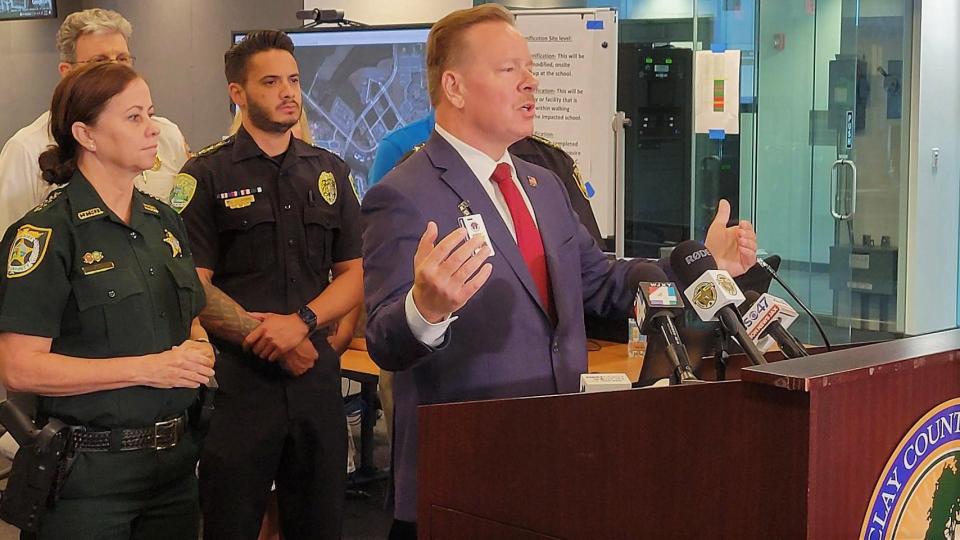Clay schools' agreement to change teaching of non-English speakers ends Justice Dept. probe

The U.S. Justice Department will oversee changes to Clay County schools’ screening and teaching of students just learning English as part of a civil rights investigation settlement announced Monday.
“This agreement will help ensure that English learner students in Clay County are given the tools necessary to succeed and strive in the classroom,” Kristen Clarke, assistant attorney general from the Justice Department’s Civil Rights Division, said in a release about the agreement a subordinate signed in her name.
Clarke said that “students who are learning English have the right to engage in coursework alongside their peers,” and that her agency “will continue to hold schools accountable when they fail to deliver on our collective promise of equality.”
The agreement affects at least 1,250 youngsters in the 36,000-student school system, where youths and their families speak 43 languages, predominated by Spanish, Haitian-Creole and Tagalog.
More: Clay gets A grade as school district, but a few schools lagging behind
More: Clay School Board proceeding with new school plans

A Justice report said Superintendent David Broskie, who took office after the federal probe began in 2020, “cooperated fully throughout.”
The federal Equal Educational Opportunities Act requires schools to take special steps to teach students who aren’t proficient in English, called English learners or EL.
The Justice report said the county’s testing system to spot students wo aren’t English-proficient may be missing some youths and that the “mainstream-inclusion” approach the county uses “places EL students in classrooms with no EL services.”
The report, completed after remote interviews and in-person visits to nine schools, described finding “no evidence of actual English instruction and only scant evidence of [teaching] strategies that make core content accessible” to students who don’t already know English.
The school district agreed to take inventory of its material for teaching EL students within 90 days and review its policies for choosing material for EL students.
A different screening test will be in use by the start of next school year, the agreement said, and parents who don't understand English will be entitled to have important school information translated for them.
The school district agreed to help students learn English in addition to the “core subjects” taught in individual classes, and said that would only be waived if a student’s parent made a “voluntary and informed” choice, in writing, for the student to opt out of English instruction.
Phone and voicemail messages to a school district spokesperson weren’t returned, but WJXT TV-4 reported that a school system statement said that “Our current program has been approved by the state of Florida, and the District stands prepared to continue building upon the success of our current English Learner Program and expand the program through the implementation of additional coaching and support.”
The settlement agreement says Justice will oversee implementation of the changes for four years.
“School districts must provide English learner students with appropriate services to overcome language barriers,” U.S. Attorney Roger Handberg said for the Middle District of Florida. “We are pleased that the Clay County School District has agreed to embrace its obligation to meet the language needs of its English learners so that students can learn English and fully participate in the district’s educational experience. Equal access to educational opportunities is at the heart of civil rights protections for our youth and students are entitled to equal access despite any language barriers they may have.”
This article originally appeared on Florida Times-Union: Clay schools to change teaching of students speaking foreign languages
